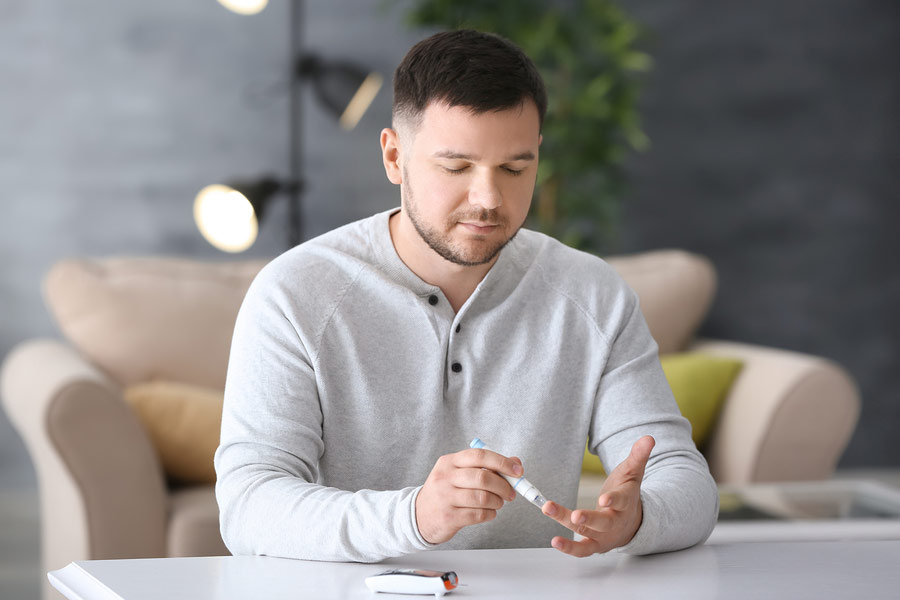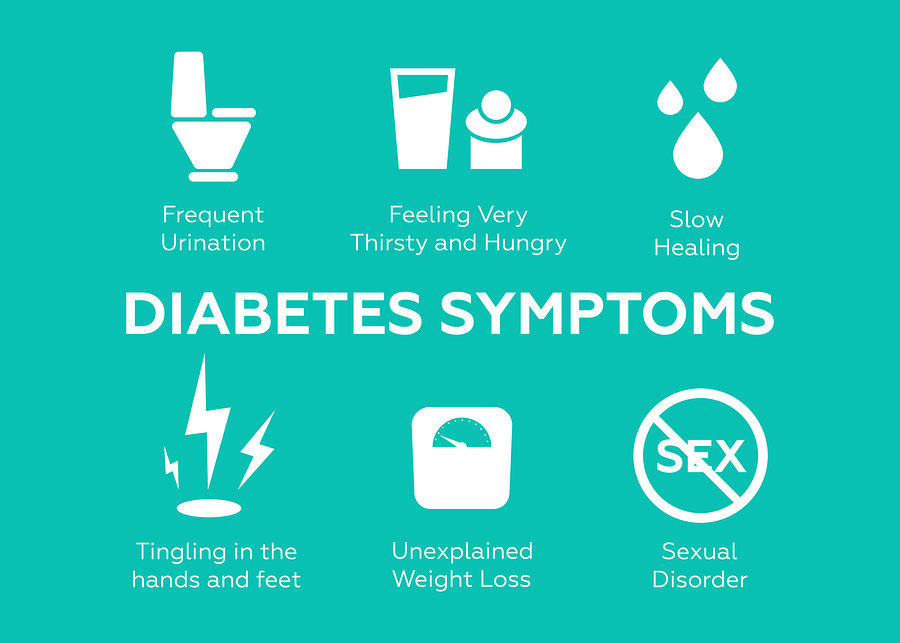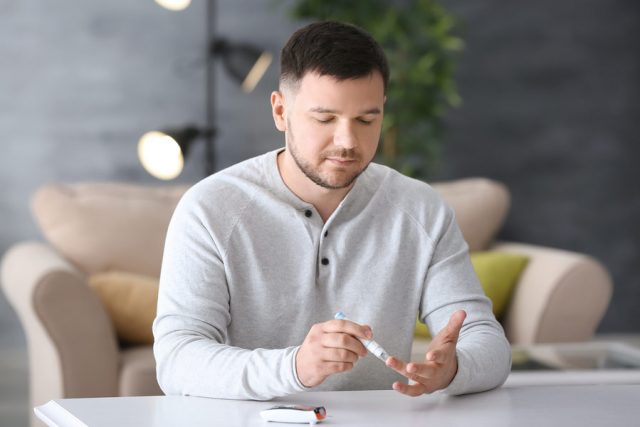
Diabetes is a metabolic disorder characterized by elevated blood sugar levels over an extended period of time. Type 2 diabetes is diagnosed via a panel of blood tests which include a fasting blood sugar test, insulin levels, and a Hemoglobin A1c (HbA1c). The HbA1c blood test is a simple test that determines your average blood sugar levels over the past three months, indicating how well your body is managing blood sugar levels.
Type 2 diabetes is caused by insulin resistance, which results in consistently elevated blood sugar levels. Insulin resistance occurs when the body can no longer normally respond to insulin. When the body does not respond to insulin the way it should, the pancreas compensates by increasing insulin levels to allow for blood sugar to be taken up by the bodyandrsquo;s cells as an energy source. When the pancreas can no longer secrete enough insulin, Type 2 diabetes occurs as blood sugar levels remain consistently high.
Symptoms of Type II Diabetes
You need to urinate more often than usual
One of the more common and early signs of Type 2 diabetes include increased urine output. This is usually noticed at night, as sleep in interrupted with the urgency to urinate.
When blood sugar levels are consistently high, the kidneys start to compensate and increase filtration to allow for removal of excess blood sugar via urination.
You feel thirsty all the time
Because the kidneys are working harder to produce urine, to rid the body of excess blood sugar, your body is losing water faster than it usually would. This loss of water will make you feel thirsty all the time.
This, along with increased urination, is usually the first tell-tale sign that you may have diabetes.
You feel hungry all the time
People with undiagnosed or unmanaged Type 2 diabetes tend to feel hungry all the time. Because your body is insulin resistant, the bodyandrsquo;s cells are not able to take up the sugar in the blood, starving the cells from the simplest form of fuel. This leads to a feeling of constant hunger and even carbohydrate cravings.

You feel tired all the time
Because of your bodyandrsquo;s inability to take up glucose from the bloodstream, you may feel fatigued all the time. This is also compounded by having to get up multiple times in the night to urinate and drink water.
Your wounds heal more slowly than usual
As we get older, wounds usually start to take longer to heal. But if you have a wound or a cut that is taking weeks or month to heal, you may have diabetes. Consistently high levels of blood sugar will damage blood vessels, which can result in impaired circulation and impacts wound healing abilities.
Your vision is blurred
Blurred vision in someone with diabetes is caused by the damage to the tiny blood vessels and nerves in and around the eye. Your vision may not be blurry all the time; the blurriness may come and go. And the blurriness may only occur in one eye.
You have dark patches of skin
If you are insulin resistant or have Type 2 diabetes, you may have a skin condition known as acanthosis nigricans. This skin condition results in dark patched of skin that often feels very soft and velvety to occur in the creases of your neck, groin or even in the armpits.
You have more yeast infections or itchy skin in general
When your blood and urine sugar levels are consistently high, they provide an increased food source for yeast that is normally found in the mouth, genitals, and armpits. With an increased food supply, the yeast can multiply rather rapidly which can result in yeast infections. A yeast infection normally presents itself as itching, burning, and redness. These areas can even become sore. In women, there may also be an increase in vaginal yeast infections.
You have tingling or numbness in hands or feet
Elevated levels of blood sugar will damage blood vessels and nerves, which can result in numbness, tingling, and even pain in the hands and feet.
If you have any or a combination of the signs and symptoms above, have a discussion with your primary health care provider or general practitioner.
A diagnosis, along with a treatment and management plan is essential in the prevention of other more serious complications such as heart disease, stroke, permanent nerve damage, kidney disease, eye disease as well as sexual problems.
Did you find this article helpful? Join us at HealingWell for support and information about Diabetes. Connect and share with others like you.




